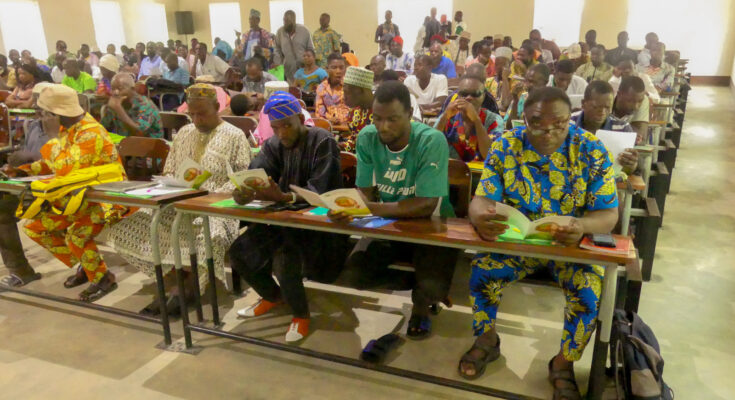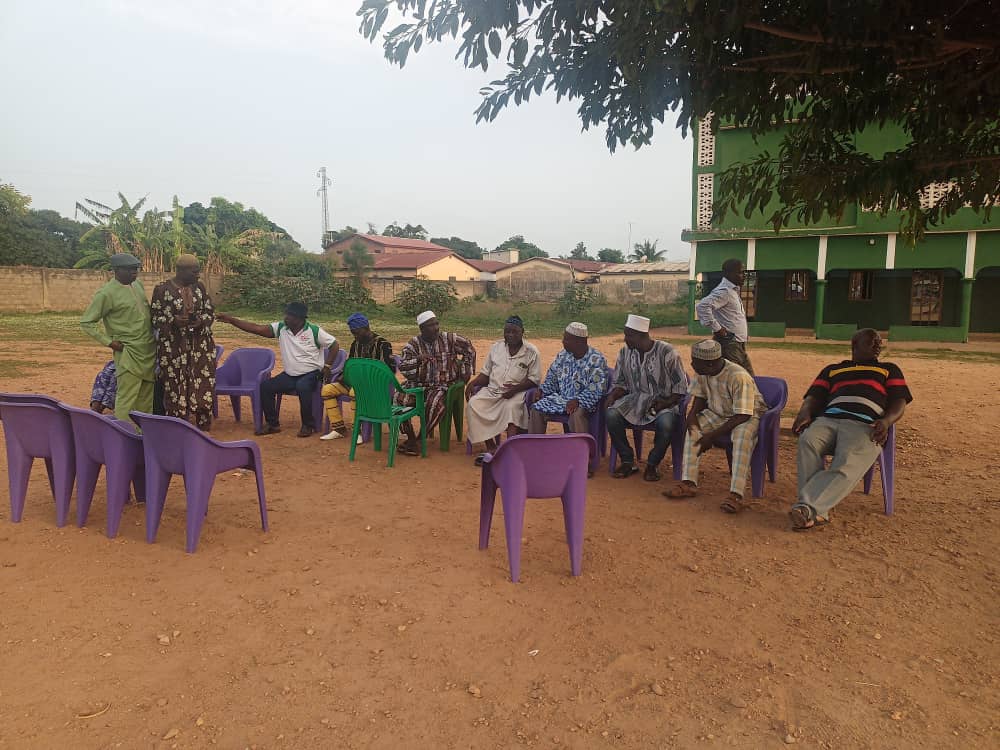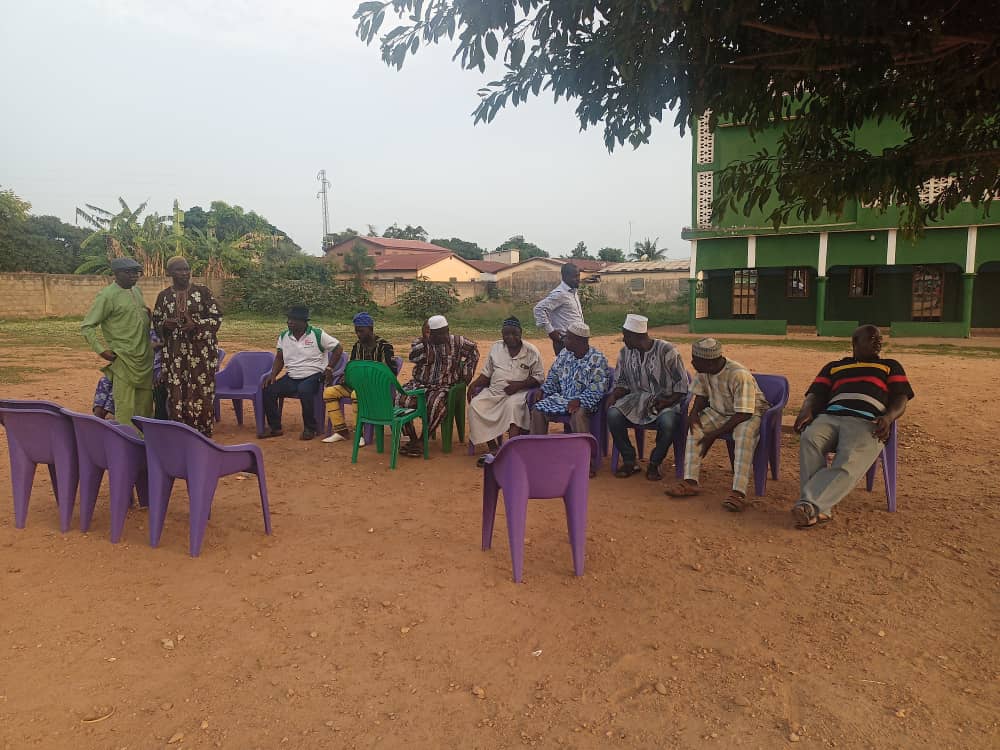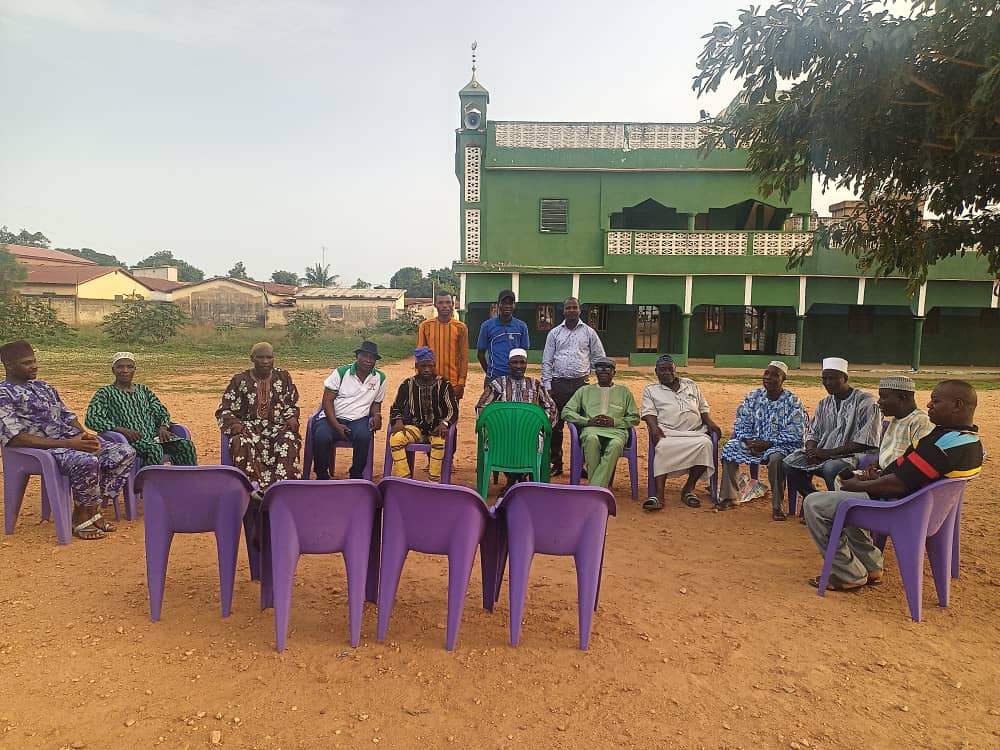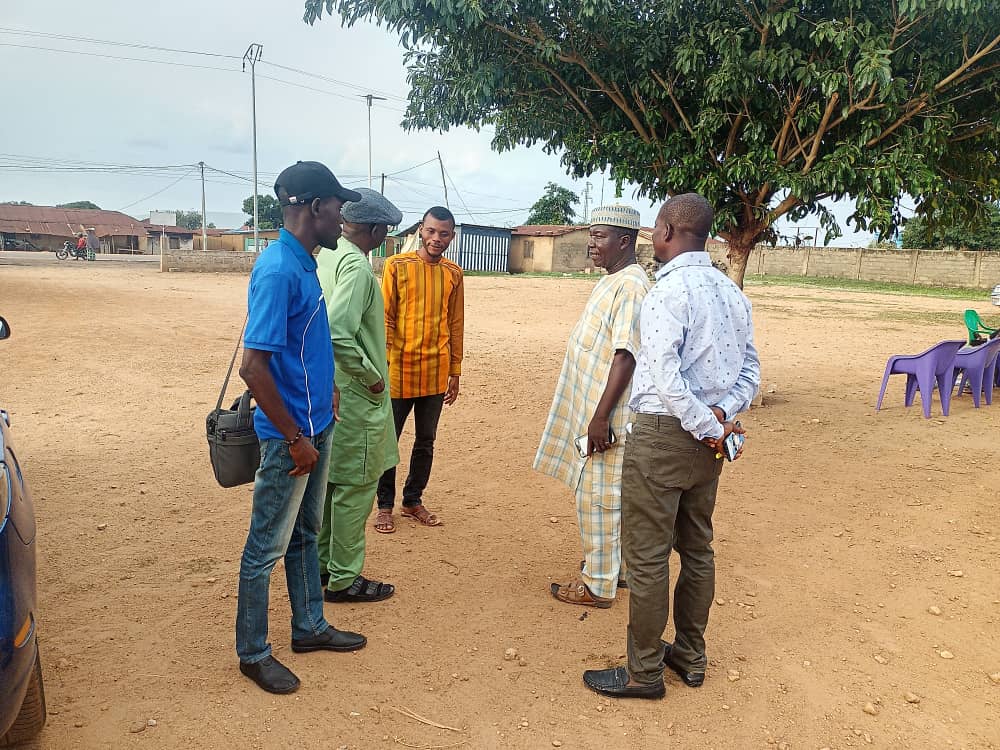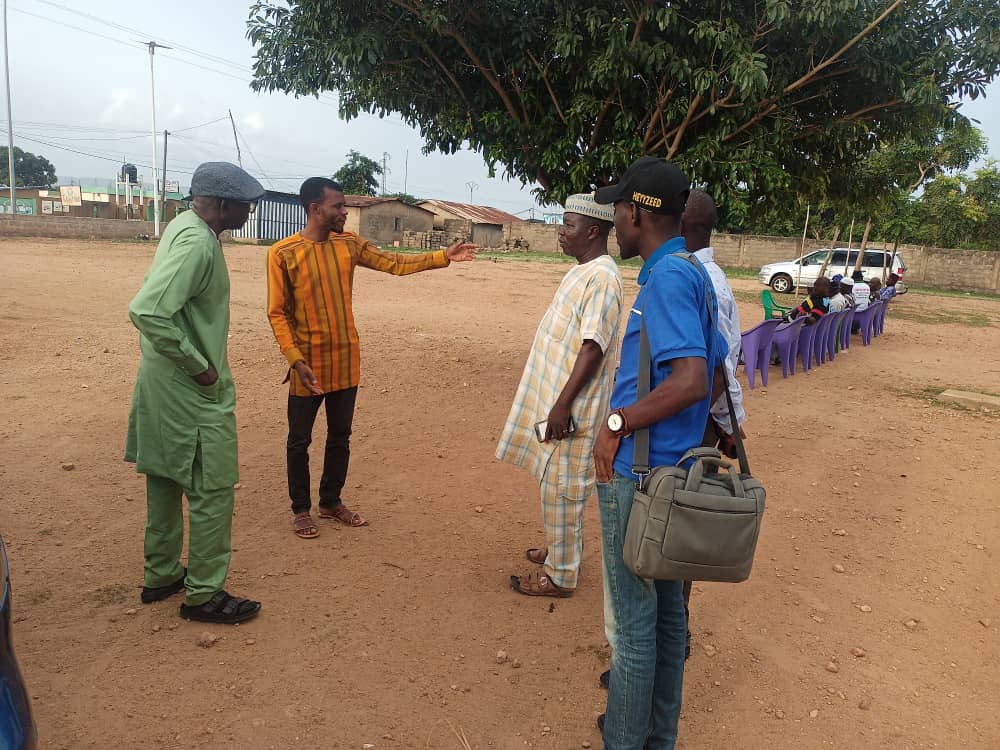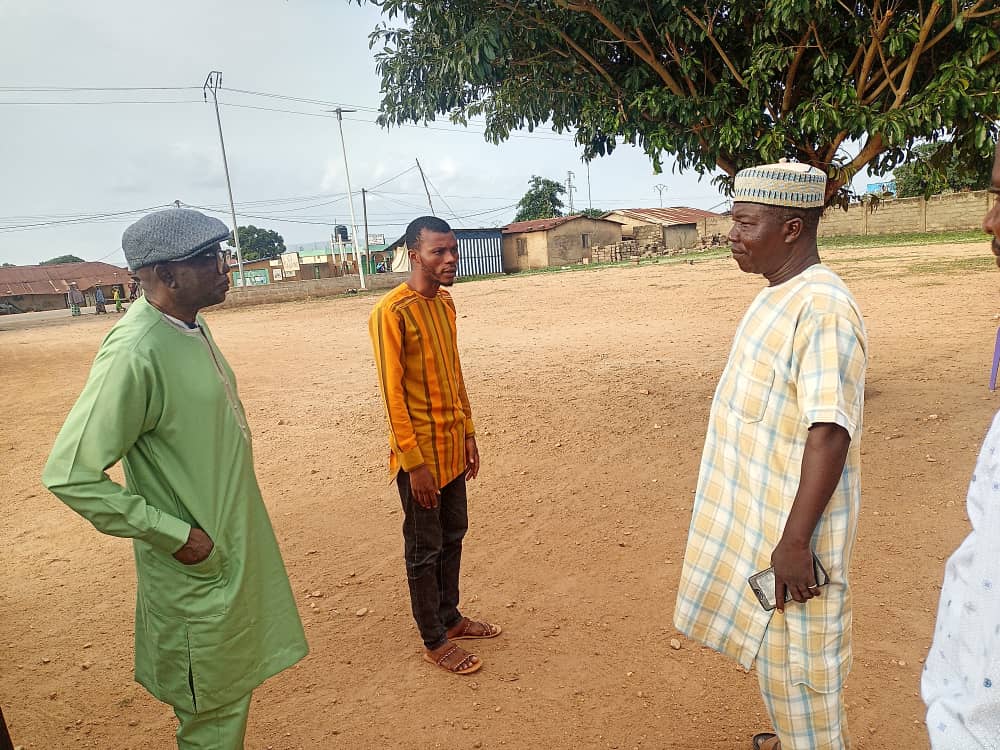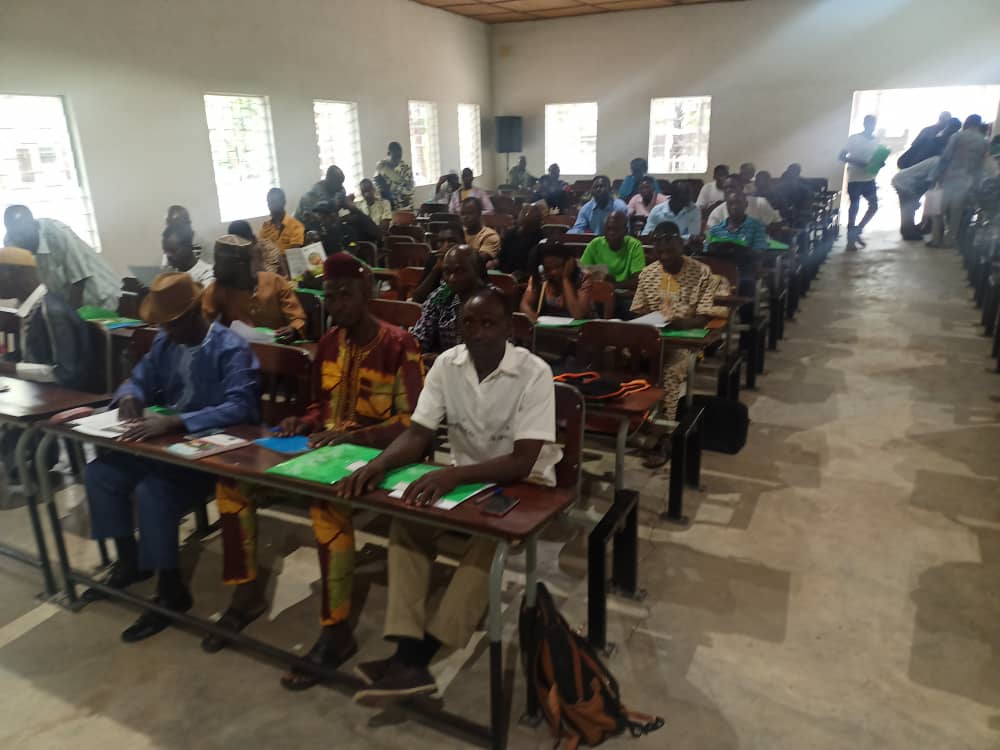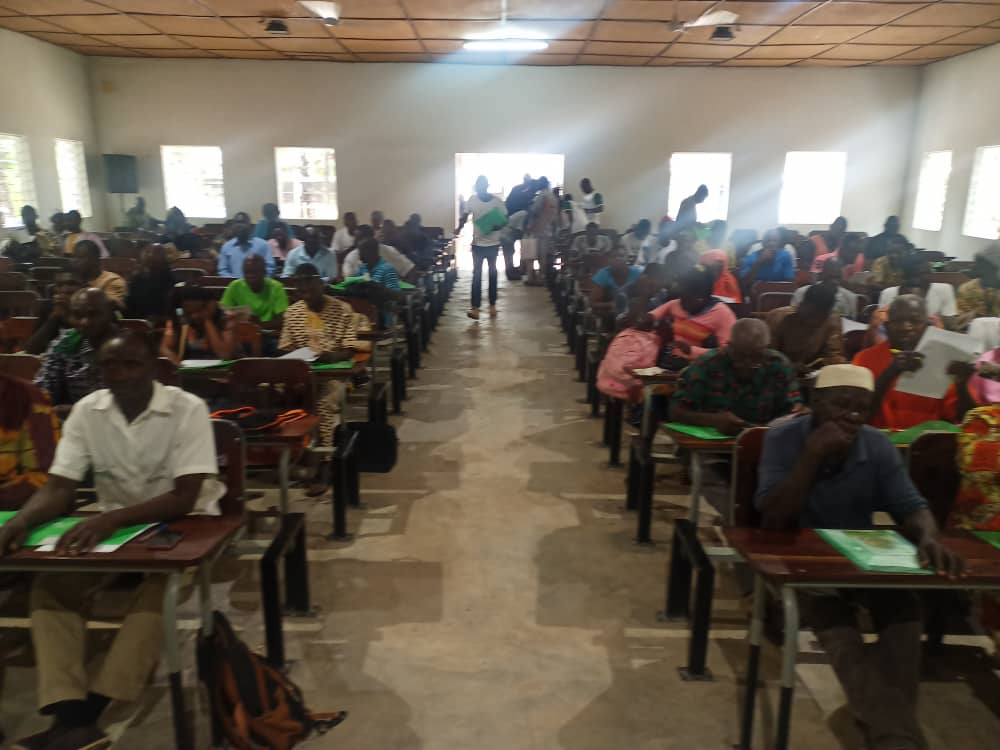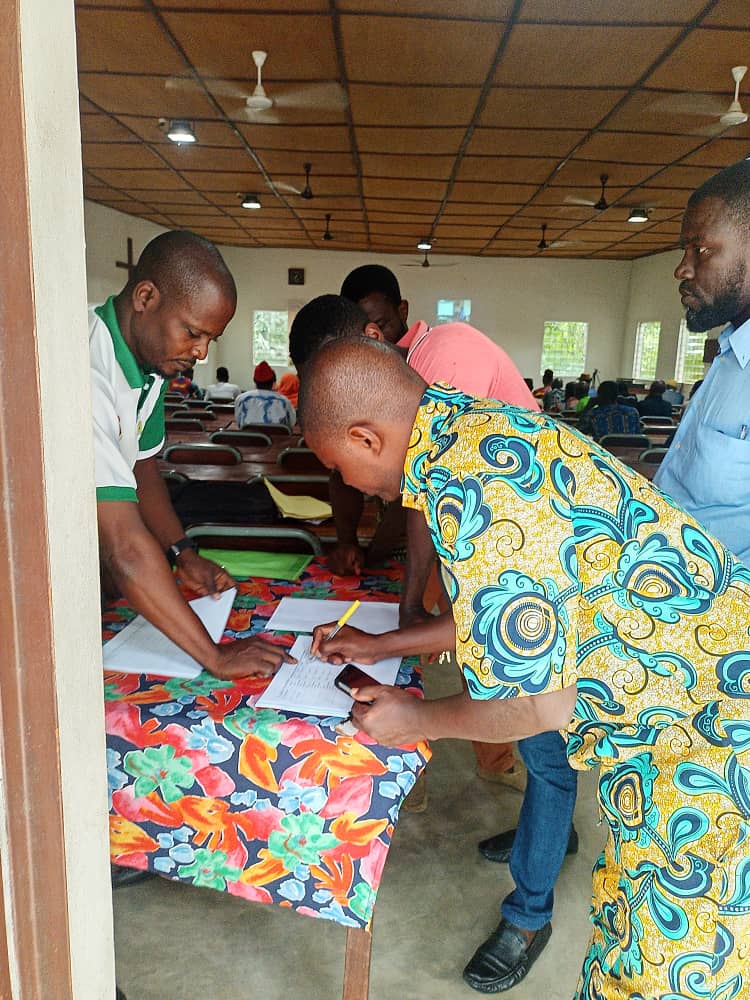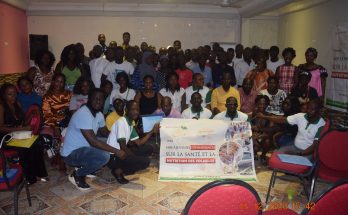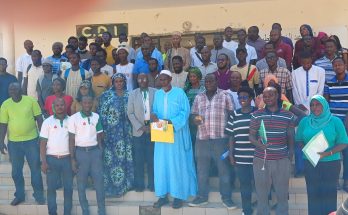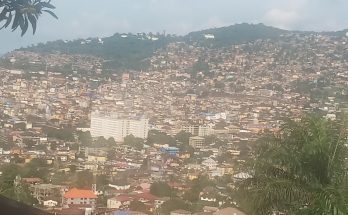The knowledge update on poultry health and nutrition programme is aimed at enhancing sustainable growth for sub-Saharan Africa’s livestock livelihood. This is one of the strategies implored by LIFA to promote advocacy against many challenges facing the poultry industry in tropical sub-Saharan Africa, with specific references to her vulnerability to climate change aftermaths. The NGO successfully conducted a one-day training programme operations in the northern region of Togo at Kara and Sokode towns on the 2nd and 4th of May, 2023 respectively.
Accomplishment
The programme successfully trained 588 participants in the Northern part of Togo (Sokode and Kara) with 54.6% poultry farmers, 10.4% veterinarians, 4.8% animal scientists, and 30.3% other livestock stakeholders in the region. The training programme recorded 76.7% males and 23.3% females. To watch the training programme in Sokode, click the link below. https://fb.watch/ln_cs80yrb/ and in Kara click https://fb.watch/ln_t8tH4ge/

Lecture Delivered
Topic: Climate Change, Poultry Production, and Laboratory Intervention: The Role of Mycotoxin
Speaker: Dr. Stephen Adejoro.

Dr. Stephen Adejoro in his presentation, he talked about the aftermaths of climate change and its effects in three parts to the participants: change in weather, increase in temperature, and lowering farmers’ yield. He reported that an increase in temperature can decrease weight gain in birds, decrease egg quality and production, decrease feed intake, and increase mortality and morbidity, among many other things.

He asked a big question when presenting his lecture to the participants: “Why do vaccination failure cases occur again and again in poultry farms?” Then he responded that when contaminated feed is consumed by chicks or adult birds, it poses a serious threat to the functional integrity of the immune system, which leads to resistance development and persistent vaccination failure.
Dr. Adejoro concluded that it is no longer ethical for practitioners to implement treatment based on a tentative diagnosis and suggested that laboratory diagnosis is more definite and specific in targeting the etiology or causative agent of the problem.
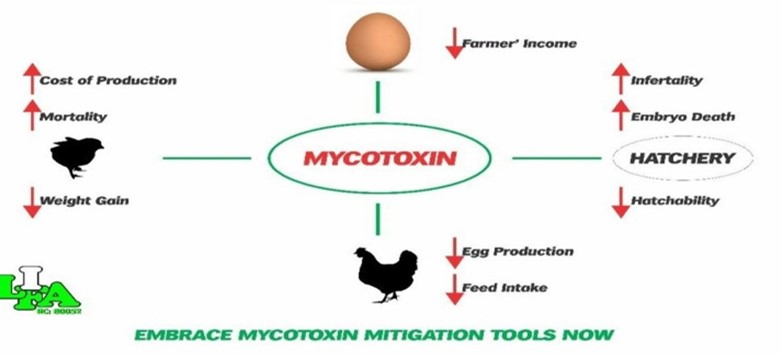
Topic: Local Nutritional and Management in Togo Poultry Industry
Speaker: Mr. Difezi Tchagbele.
Mr. Difezi Tchagbele in his presentation focused on the housing and feed formulation of poultry birds. He discussed how raising chickens makes a substantial contribution to household food security and poverty reduction in developing countries like Togo. He reported that it is characterized by low productivity, partly as a result of poor husbandry techniques. He also discussed feed formulation and requirements as per percentage of nutrients per kg of feed for different categories of birds.
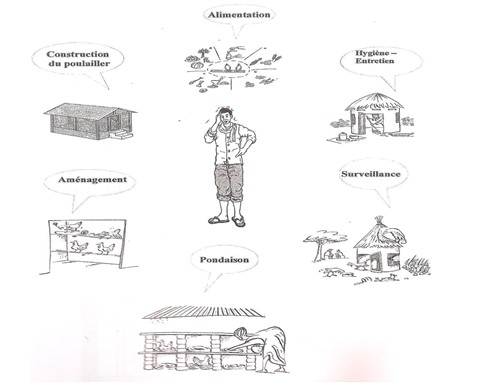
He gave some practical advice to the farmers during his presentation stating that farmers should always use good-quality raw materials, avoid premix loss, and check that the ingredients are evenly distributed after mixing, and so on.
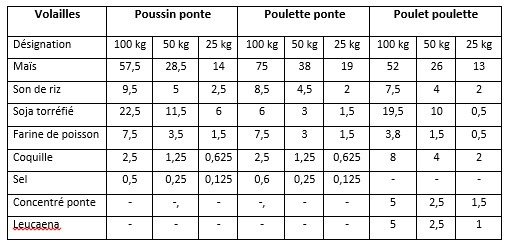
He presented the feed formula for laying birds to the farmers and discussed poultry building orientation with the participants. He then recommended orienting the building axis in East-West direction to limit the penetration of the Sun’s rays into the building.
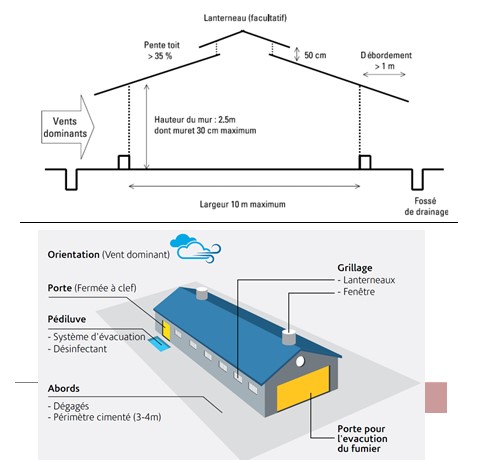
In order to measure or capture the needs of the participants and likewise check the situation of the poultry industry in Togo before the training programme, a focus group discussion session was organized during the training programme period, where the participants were grouped into different sub-groups and two individuals were selected in each sub-group to pilot the discussion session of their group.
In order to measure or capture the needs of the participants and likewise check the situation of the poultry industry in Togo before the training programme, a focus group discussion session was organized during the training programme period, where the participants were grouped into different sub-groups and two individuals were selected in each sub-group to pilot the discussion session of their group.
However, the one-day free-day programme has significantly enhanced participants’ knowledge in terms of poultry rearing and the challenges faced by the farmers. Also, the provision of technical bulletins for the participants has really contributed as learning aids for the farmers in the areas of health and nutrition. This training programme has impacted the participants positively in relation to their poultry practices.
Acknowledgments
The success of the training programme titled “Knowledge Update on Poultry Health and Nutrition” hinged on the immense support and help of Togo LIFA country contact person, the country’s Ministry of Agriculture, the regional leaders, various associations and AniskLanguage. We express deep gratitude to Zoetis Foundation and Rockefeller Foundation for their support. We also acknowledge the support of the National Poultry Association of Nigeria.

